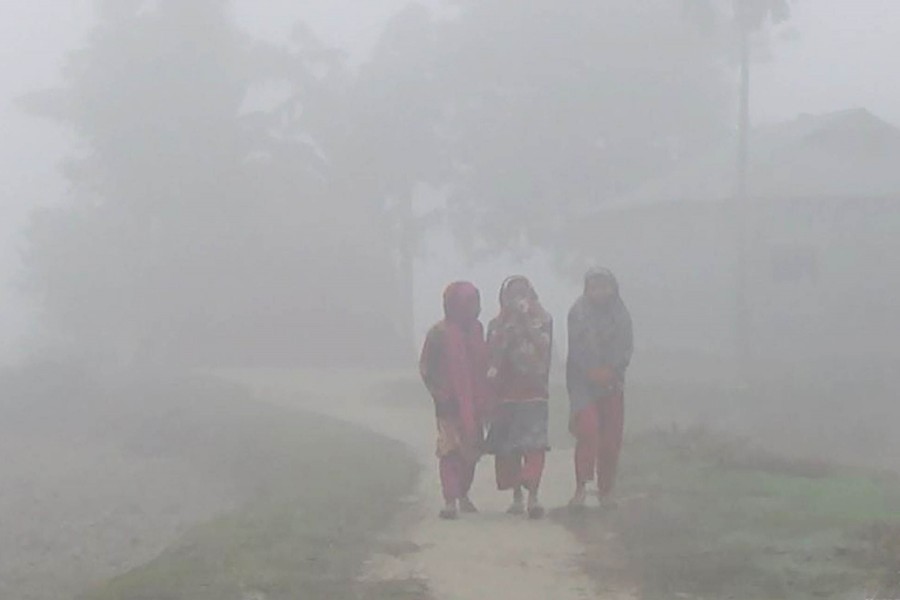
Published :
Updated :

Winter in this part of the world is mostly pleasant. This is the season when electricity bill plummets with electric fans and air coolers at homes, in office buildings and at other commercial centres remaining out of use. According to a report published in this paper on December 29, "electricity generation across Bangladesh now hovers over one-third of the capacity with all diesel-fired and many gas-fired power plants lying idle due to sagging winter demand." That translates into around 5,500 MW (megawatts) of power that has been laid off for the winter season. No need to get too comfortable, though, because the Bangladesh Power Development Board (BPDB) and the Rural Electrification Board (REB) are presently counting capacity payments to power plants that are deliberately being kept idle. The contracts are signed in such a manner.
As we move towards 2023, bad news looms on the horizon in the global fuel oil market. According to international media, the US benchmark oil price rose on Monday (December 26) evening "and early on Tuesday to above $80 per barrel after China announced on Monday a major easing of its Covid travel quarantine rules". Now that's great news for China and oil producing nations, but not so good for Bangladesh because we are a net oil-importing country. But then this was inevitable and if our policymakers are under the impression that the country is going to get "friendship" discount prices from its existing suppliers, it may be in for a great disappointment.
For over a decade energy experts had been demanding that a second oil refinery be set up, but that fell on deaf ears. Hence, when Russia was sanctioned by the West and started selling oil at a discount to China and India, Bangladesh was left high-and-dry. Today, policymakers are talking big about a proposed pipeline from India, which will in all probability, take a while to construct and commission. Working out all the modalities of payment and grade of oil that will be supplied via this proposed pipeline will also take some time to complete.
Getting back to the issue of global oil prices, some international energy media outlets are reporting that the price of oil will be going up rather than down, at least in the short term. The Russo-Ukrainian war gives the picture of a war of attrition and inflated egos, with neither side willing to sit at the negotiating table to hammer out a workable peace treaty that would lead to cessation of hostilities. Then there is talk of a possible Belarusian involvement in the war, which could potentially draw in other nations and that could spell even greater trouble, not just geopolitically, but for the overall energy sector on a global scale. Perhaps Armageddon can be avoided, but the economic troubles are just beginning for everyone, including Bangladesh. With China re-emerging from a two-year hiatus, its economy will be hungry for all sorts of fossil fuels. It has both economic might and a deep purse to lure precious energy supplies its way.
Unfortunately for the people of this country, hard facts never seemed to make any sense to policymakers. The country has wasted a decade planning for sources of energy that would come from foreign destinations. The leading energy experts of the country had been warning policymakers that this is sheer folly. Regardless of how many proven data sheets were presented in the innumerable seminars on energy security over the last decade, policymakers always knew better. So, the country decided to forgo exploration of natural resources--- both gas and coal. Today, the nation is being told that renewable energy is the way forward for Bangladesh. While in the rest of the world from India to China to Europe, from the Middle East to continental America, nations are all expending billions and expanding the use of coal and LNG (only for the rich), Bangladesh is going to solve the energy crisis using renewable energy.
Bangladesh is actually in the "green". It doesn't pose any threat to global warming as its carbon footprint is less than negligible. Yet, the country refused to secure its energy basket by doing what the major economies in the region, i.e. India and China have done - secured their economies by investing in coal, gas, oil and nuclear energy. Good luck to Bangladesh in the coming year. Luck and a lot of divine blessings will be needed. Because from February-end or thereabouts, energy demand will rebound and god only knows where the money will come from to import oil for the power plants.


 For all latest news, follow The Financial Express Google News channel.
For all latest news, follow The Financial Express Google News channel.